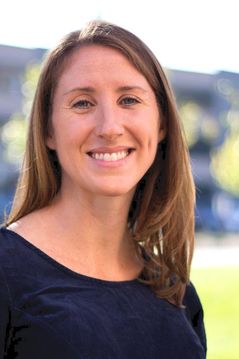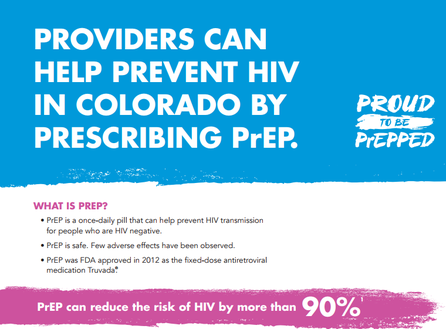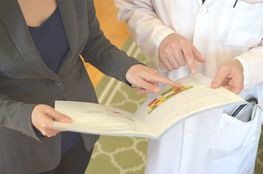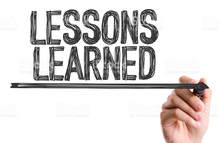Year One of Colorado Department of Public Health & Environment’s Detailing Program Guest Blogger: Deborah Monaghan, MD Public Health/Academic Detailer Colorado Department of Public Health and Environment NaRCAD Training Alumnus Tags: Detailing Visits, HIV/AIDS, PrEP, Training As the first and only detailer hired by the Colorado Department of Public Health and Environment, which serves 5.6 million people (about 3 million of which cluster around one metro area), the idea of building a detailing program from the ground up was incredibly exciting…and daunting. From the outset, it was important to determine the place of detailing within the community and establish its fit in the department’s mission. Shortly after joining the team, I presented the intended scope of my work at a department meeting--and it generated tremendous interest in the use of academic detailing for public health initiatives far beyond the current planned intervention. This served to solidify the potential value of clinical education outreach to leadership throughout the department. Lessons learned are continually surfacing as we move into year two, and a few key concepts are worth sharing.  Particularly in the early stages of program establishment, it was essential to stretch resources and leverage partnerships. NaRCAD connections with other detailing programs facilitated the exchange of print resources, protocols and lessons learned, saving valuable development time. Through CDC-funded capacity building visits, I shadowed detailing teams at two other health departments' AD programs (San Francisco Department of Public Health and the New York City Department of Health & Mental Hygiene), which provided a framework for our own program’s function. At every opportunity, I presented our detailing goals to community partners and stakeholders, resulting in many connections to medical providers, which, in turn, generated most of our initial provider visits. Submitting articles for local clinical practice newsletters and magazines also established recognition and trust in the state’s new detailing initiatives.  Once provider-facing detailing visits began, two things became quite clear: Providers crave connection to their public health department. Providers want regional data. In a state with both urban and rural/frontier areas, urban clinicians wanted to be seen as “boots on the ground” to impact large populations by treating their own patients, while rural providers wanted to be acknowledged as part of the team and directed to resources they could access remotely. All clinicians, both urban and rural, wanted the latest disease and health data for their county, zip code, and even census tract level to compare to the rest of the state. It has taken multiple attempts to get in the door in many practices. However, after a detailing visit, most providers are outspoken that they found the session worthwhile, and we've used this opportunity to ask for referrals to other providers who might be open to visits. The time investment has also enabled two-way communication allowing us to get a “finger on the pulse” of regional health and disease, particularly in the more rural areas. The initial time invested to establish relationships with providers was high, but the rate of return has justified the investment. With a new detailing program, the responsibility falls to the detailer to establish credibility, both in resources provided as well as in value for time spent.  If I were starting a detailing program again, or could support new programs who were just getting started, I would love to be armed with these lessons learned: Establish as many protocols, procedures and resources as possible. Just start! Even if every detail isn’t in place, start visiting with providers. (The steep learning curve of on-the-ground visits is incredibly valuable and will continue to shape and improve your methods.) Document everything! As methods change and processes improve, document what is changing and why. Document with the goal of sharing not simply a starting point and a finished product but an entire story. Be willing to adjust in real time. Providers will have varying needs from one to another and from one day to the next, and our flexibility will ultimately strengthen the relationships we are trying to build, allowing academic detailing to have the greatest possible impact. Biography.
Deborah Monaghan, MD Public Health/Academic Detailer, Colorado Department of Public Health and Environment Deborah joined CDPHE in 2016 as the Department’s first detailer and currently provides clinical outreach on HIV prevention and sexual health. A graduate of the University of Mississippi School of Medicine, internship took Deborah to Drexel University in Philadelphia, Pennsylvania followed by residency at St Mary’s Hospital in Grand Junction, Colorado. She will complete her MSPH through the University of London School of Hygiene and Tropical Medicine in 2018. Initial response from the provider community receiving detailing has been overwhelmingly positive, and Deborah hopes to facilitate expansion of detailing efforts into other branches of public health to impact more Coloradans. Comments are closed.
|
Highlighting Best PracticesWe highlight what's working in clinical education through interviews, features, event recaps, and guest blogs, offering clinical educators the chance to share successes and lessons learned from around the country & beyond. Search Archives
|
